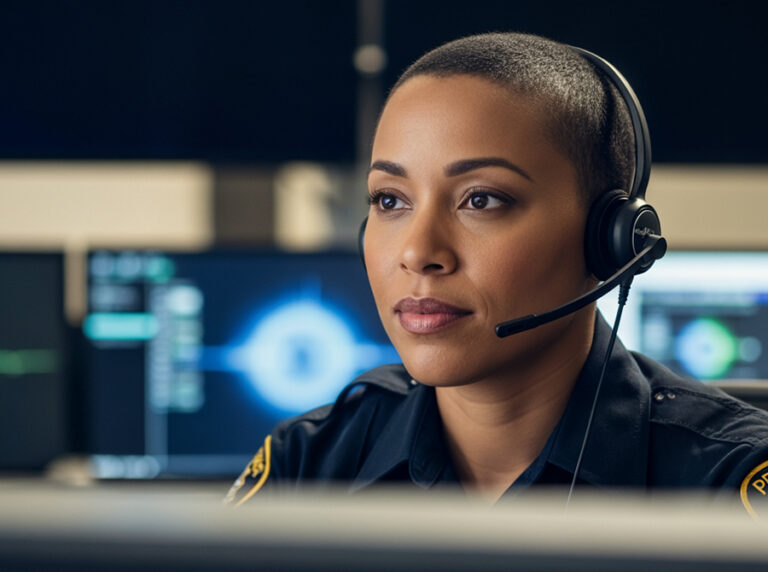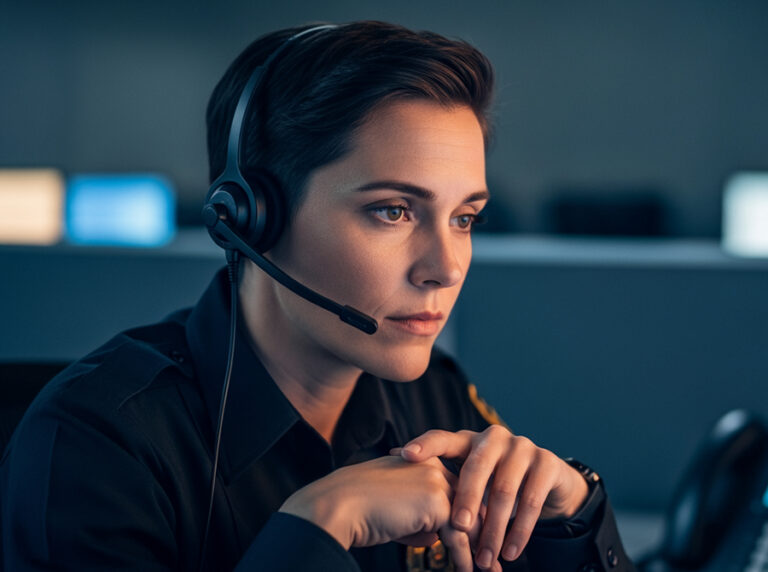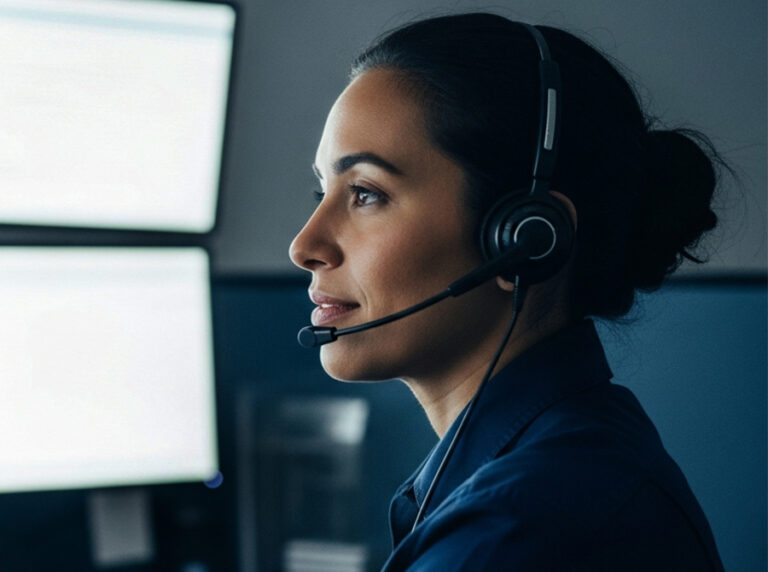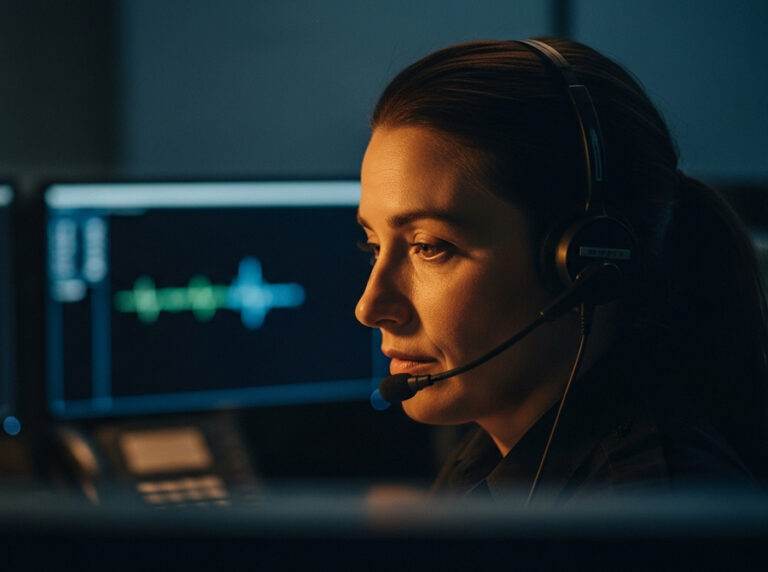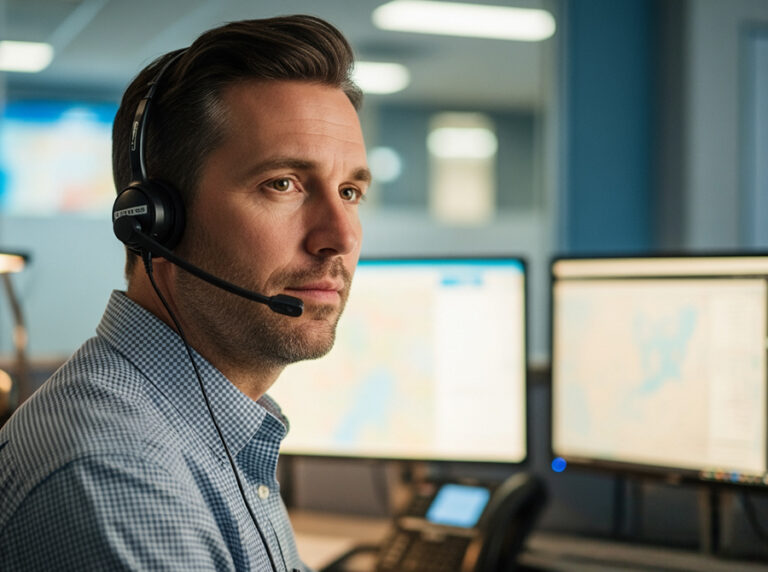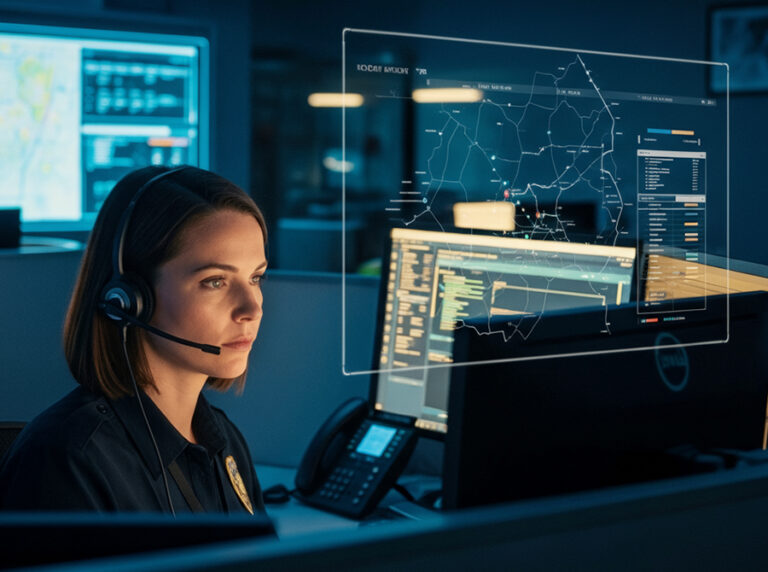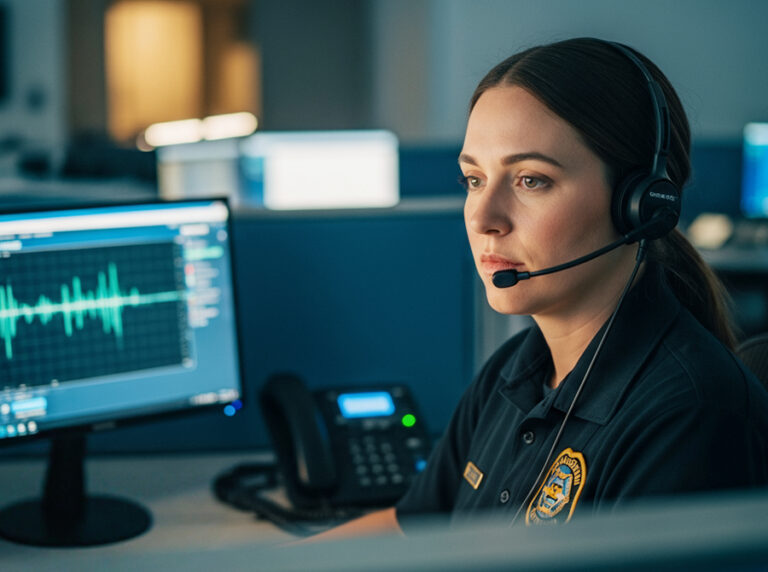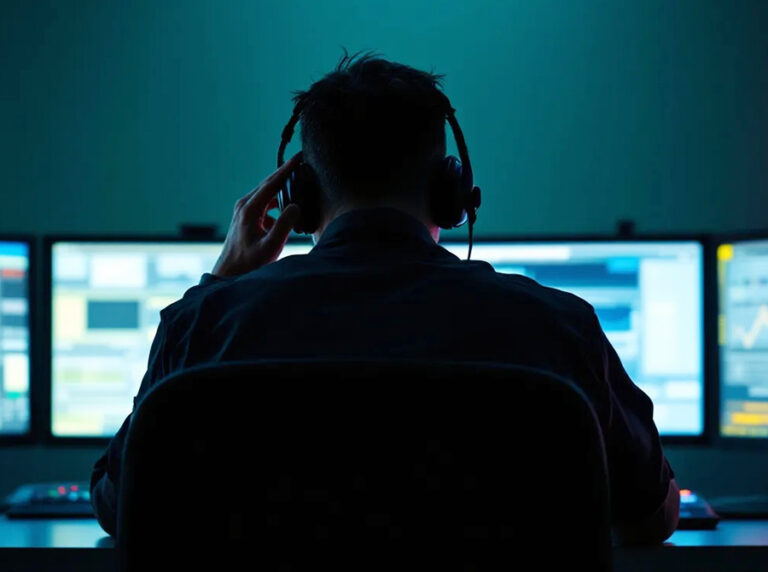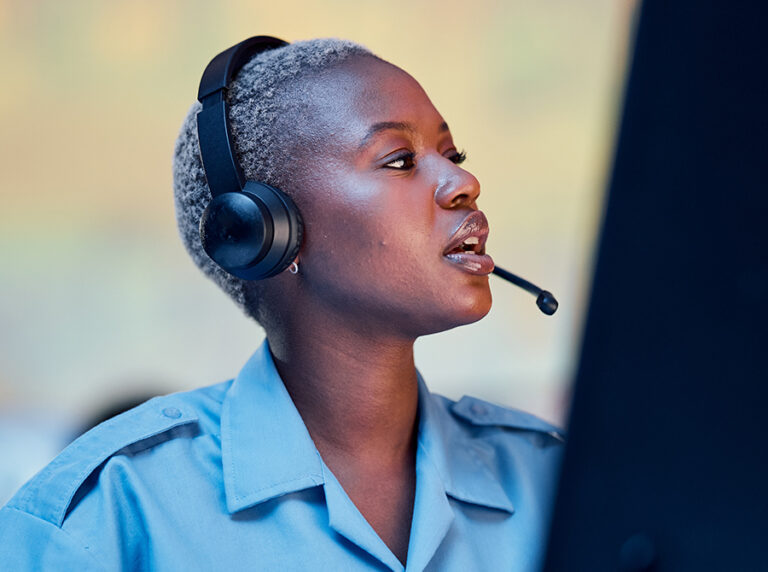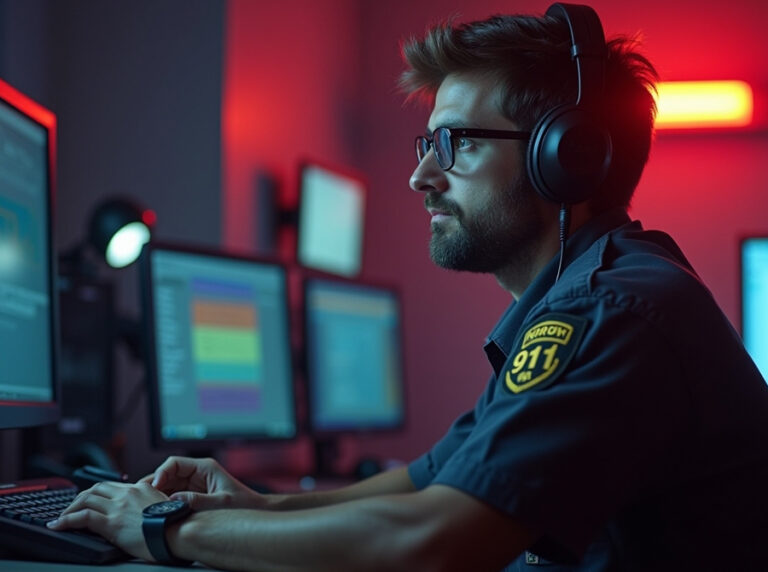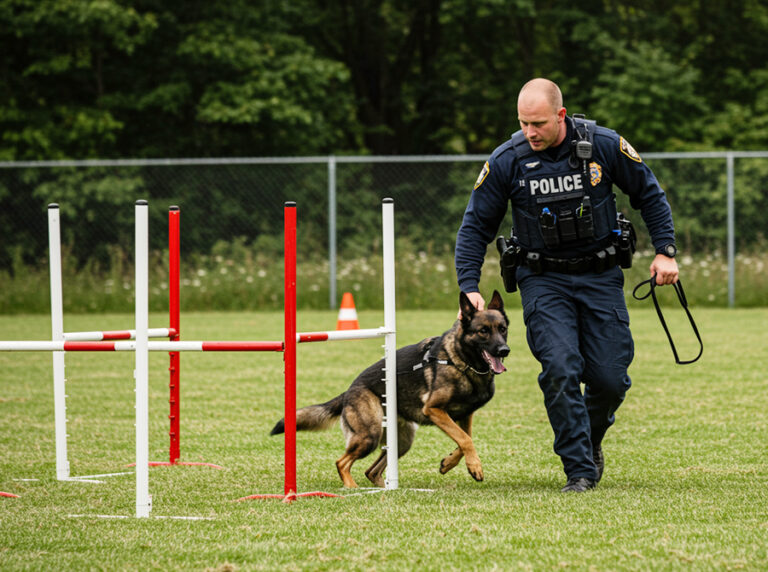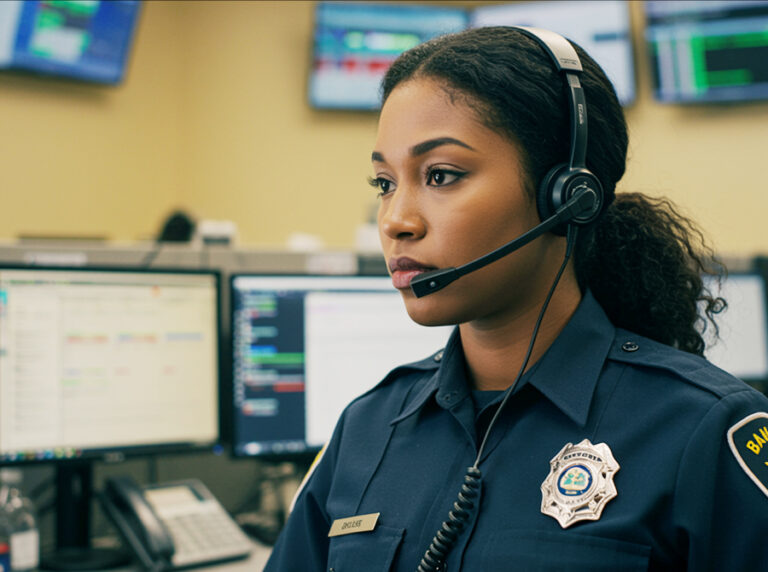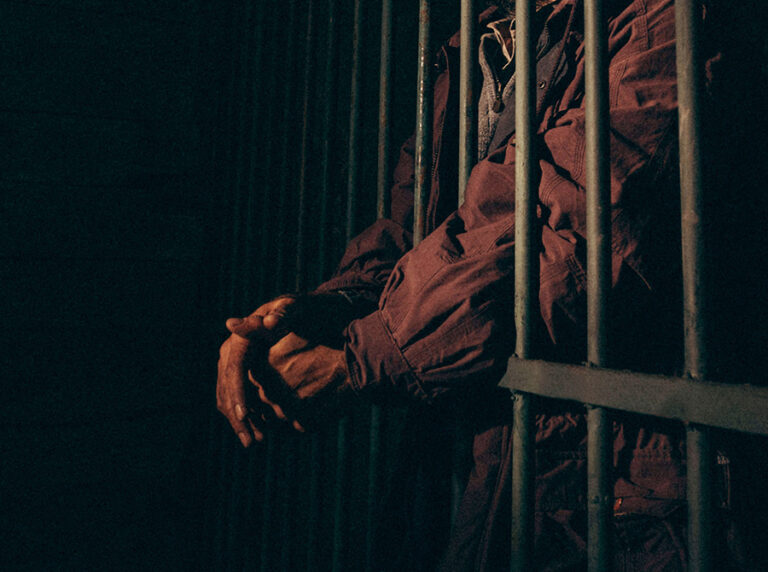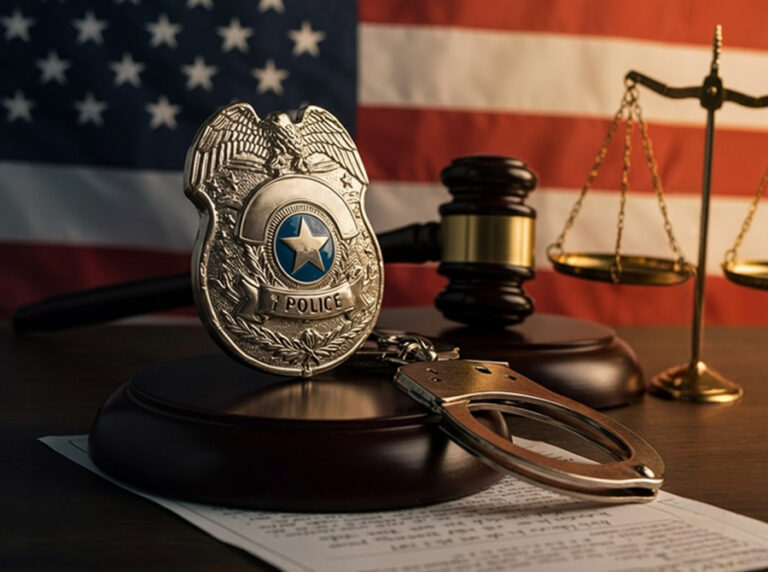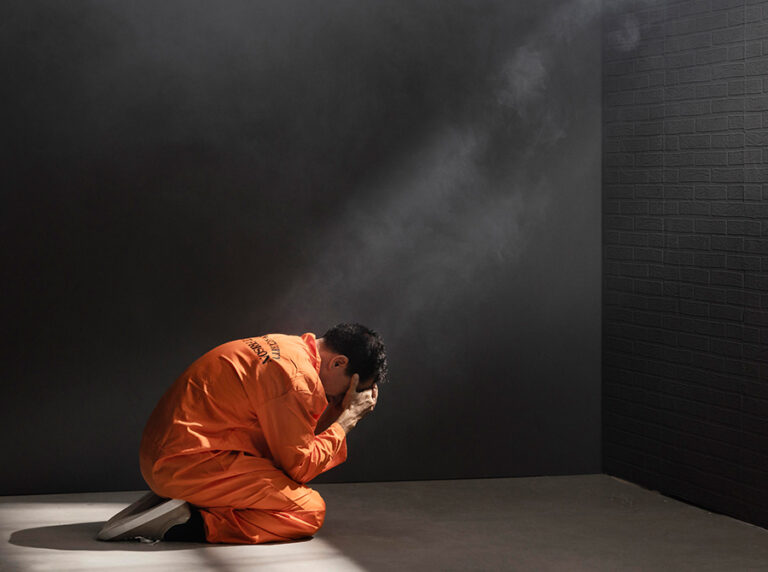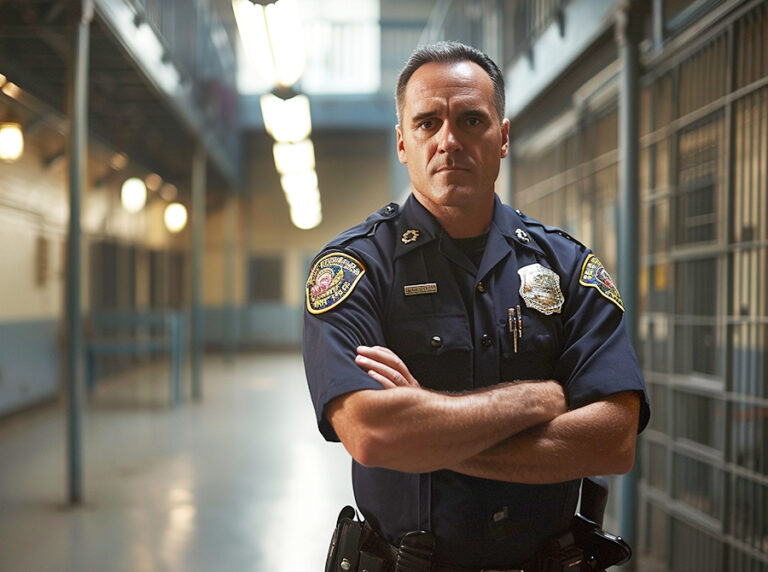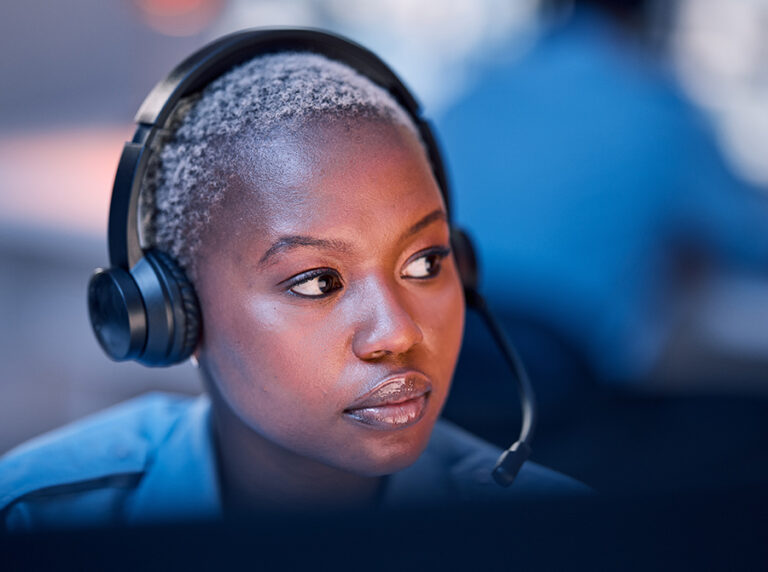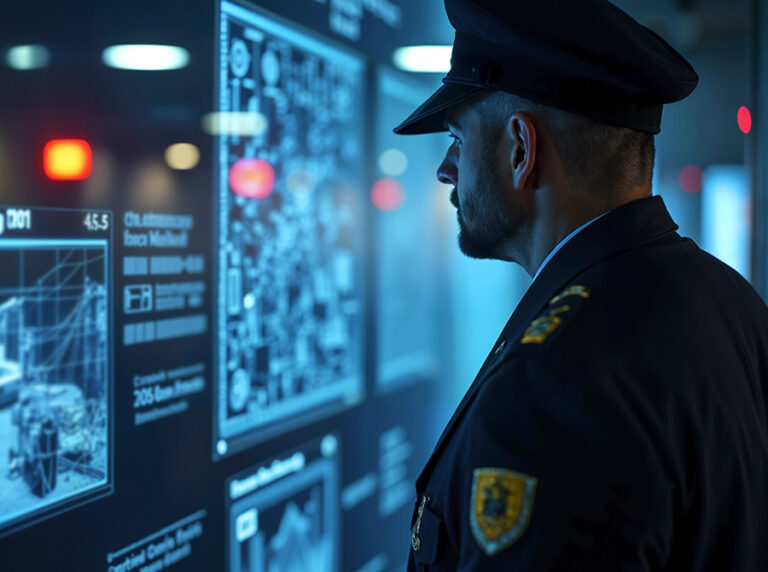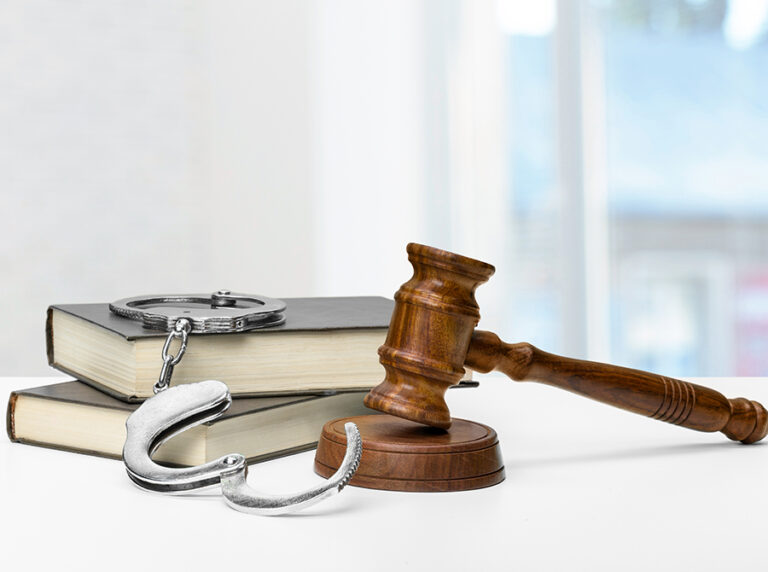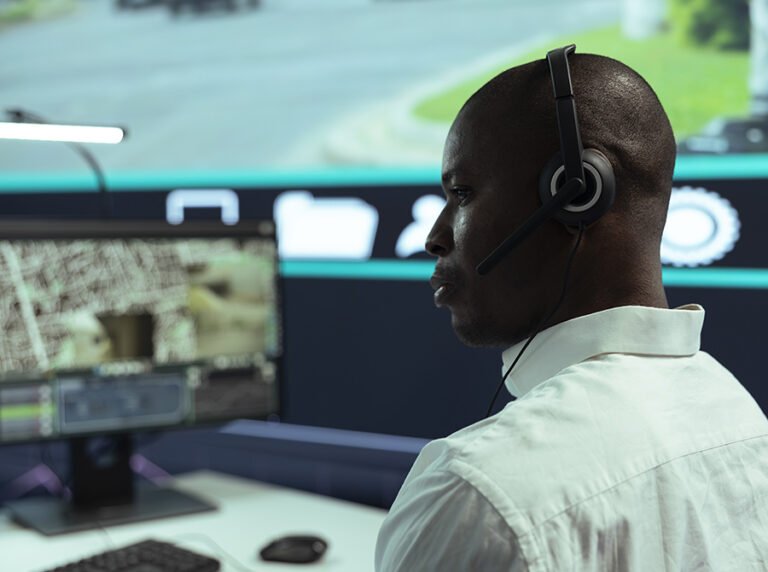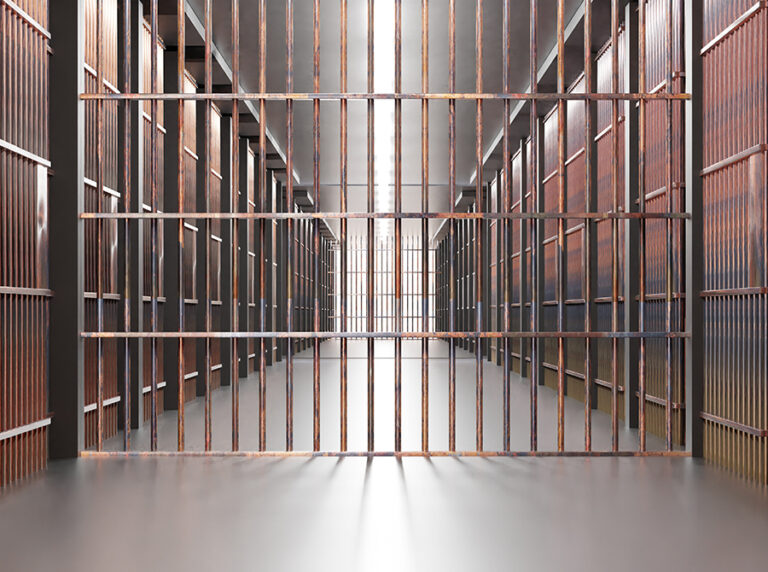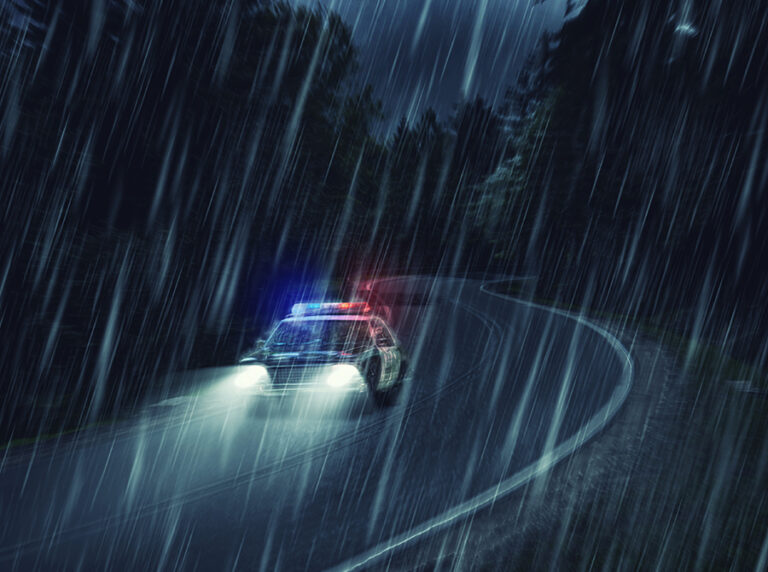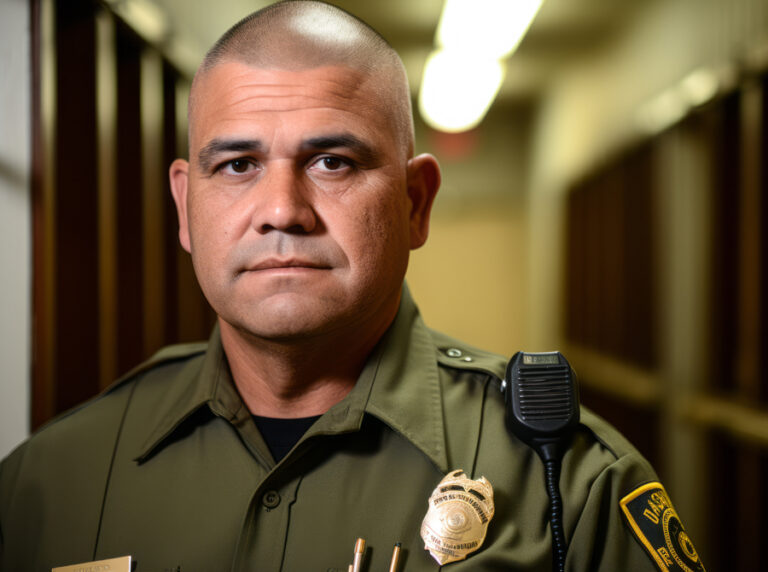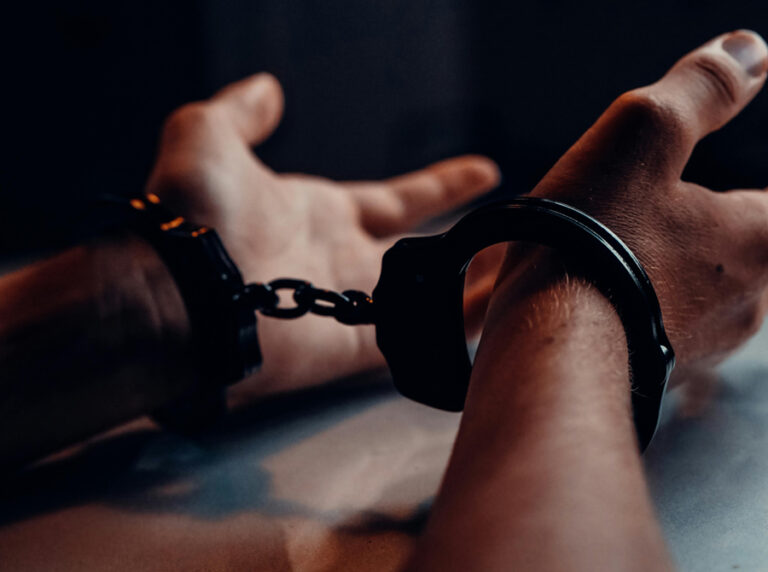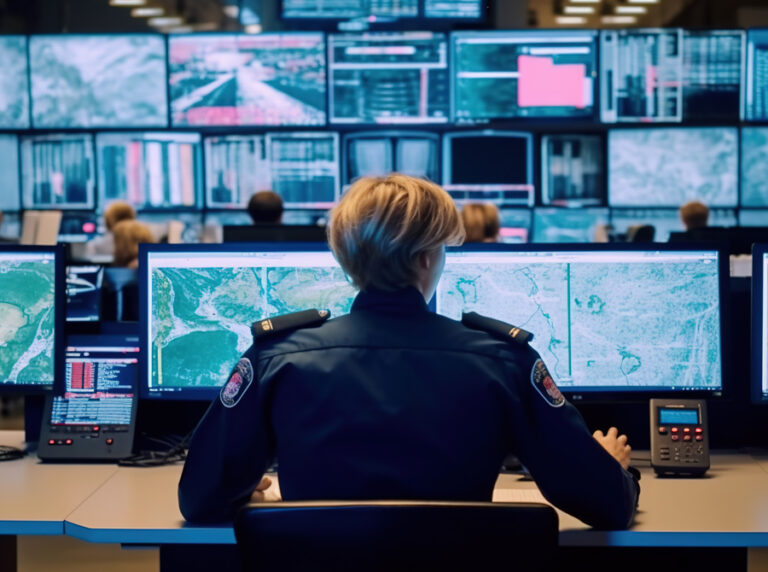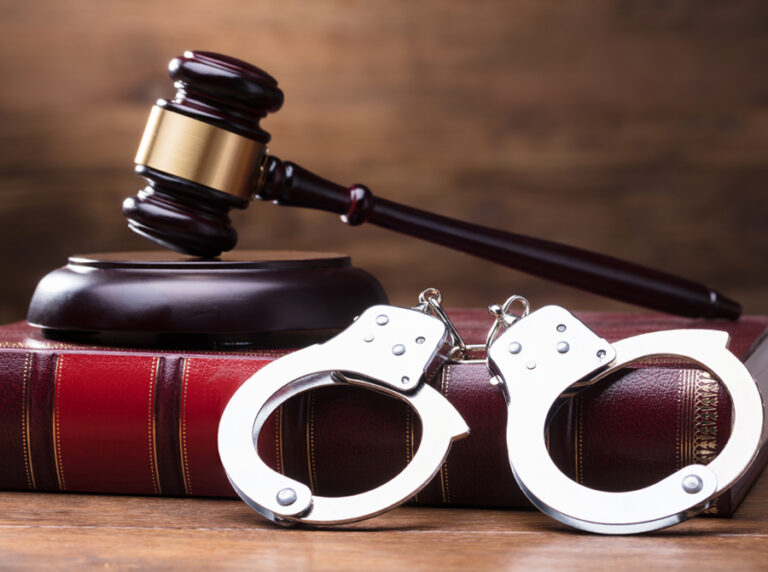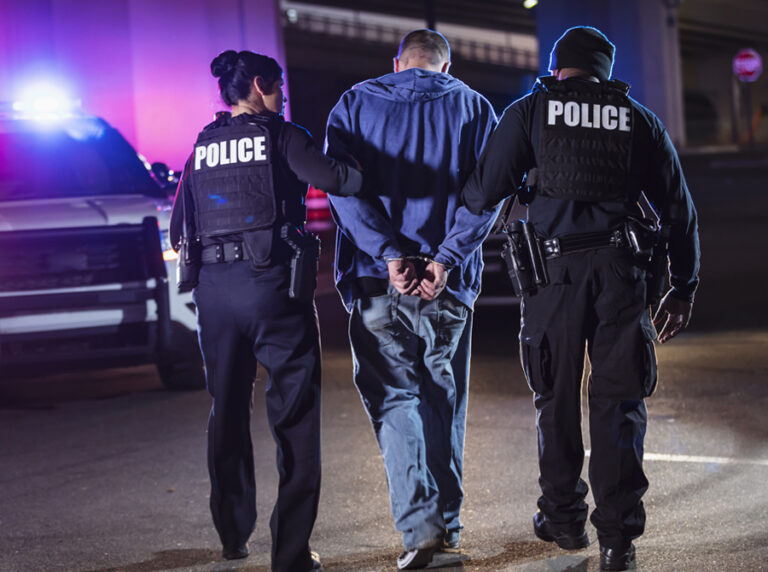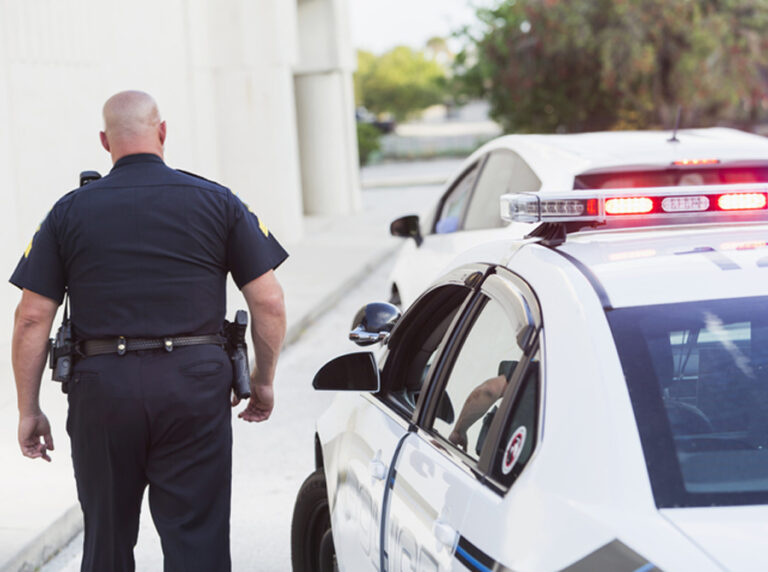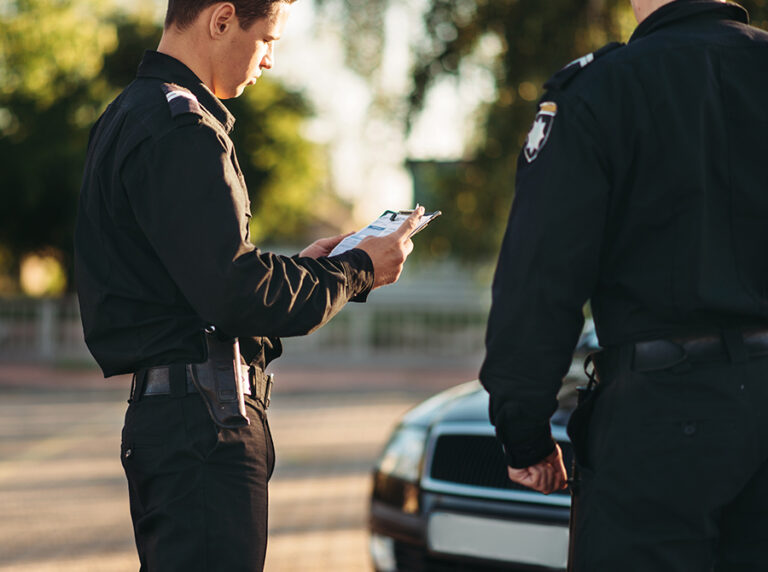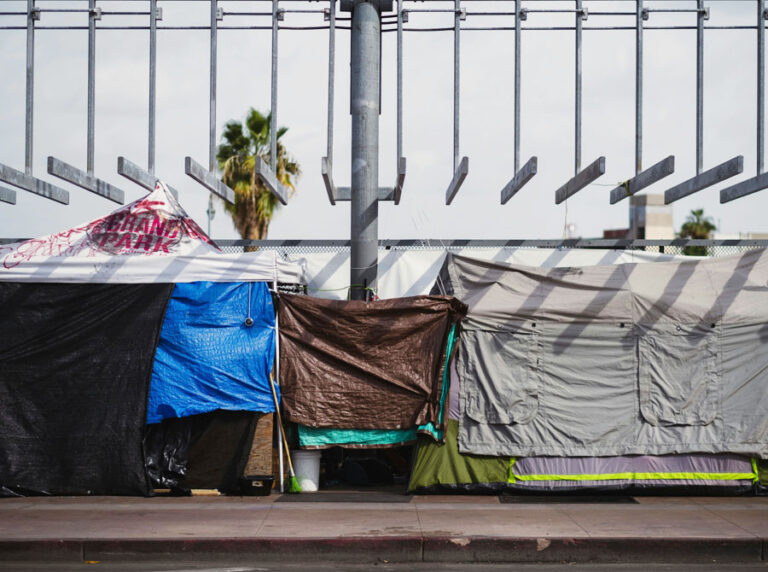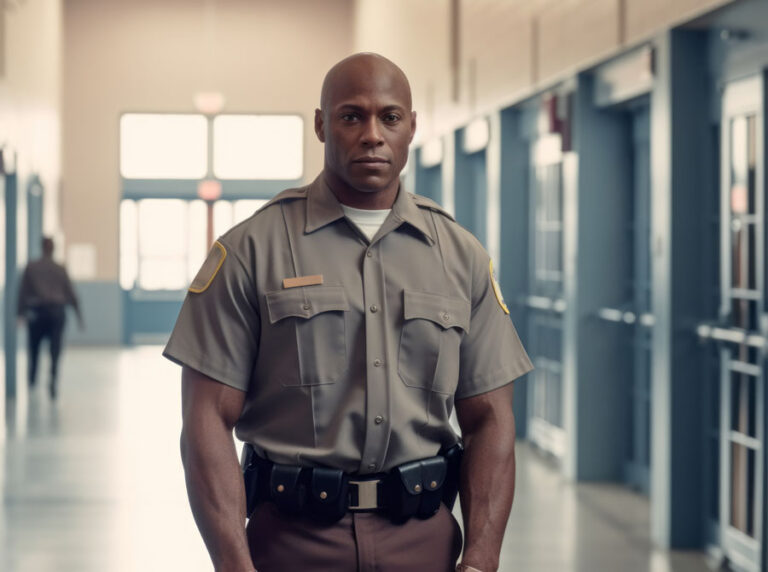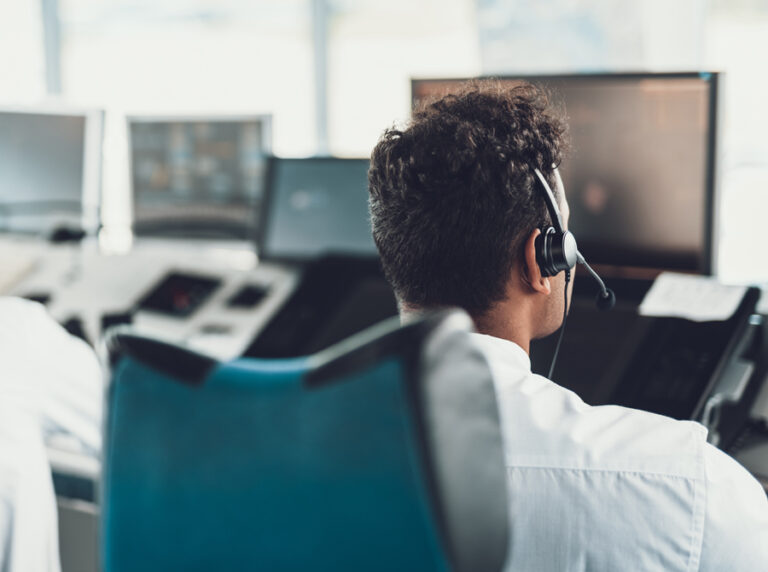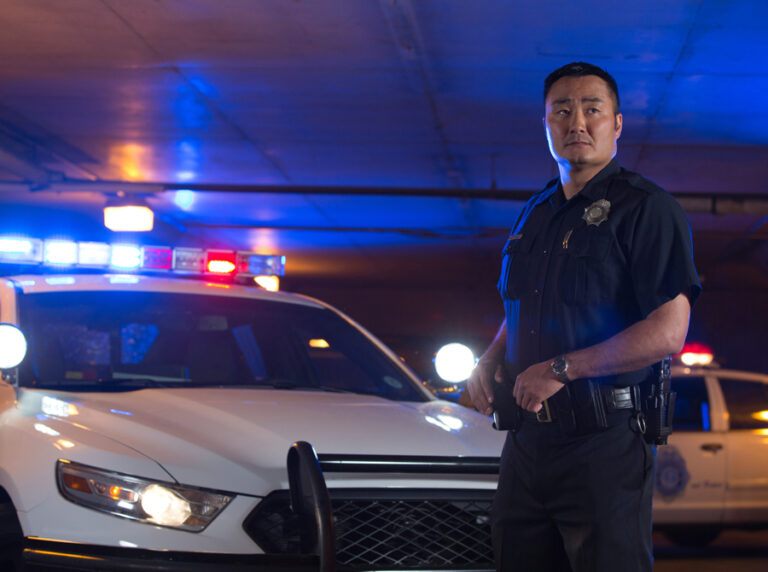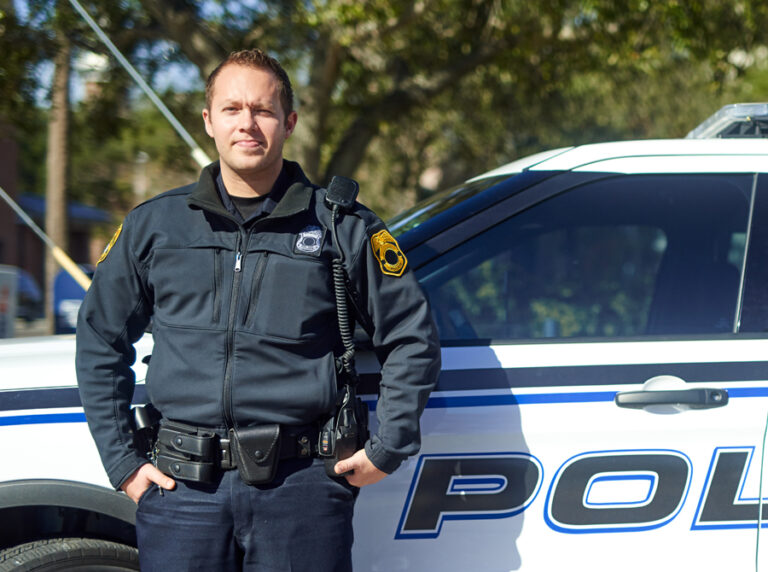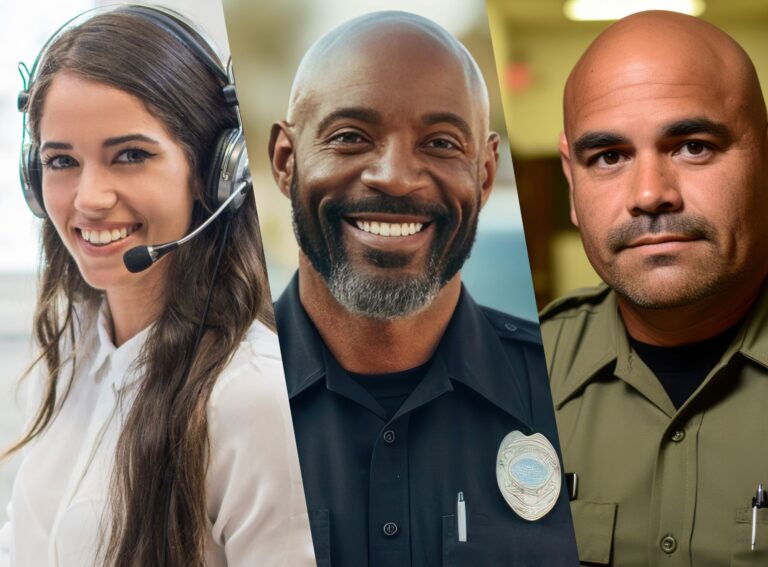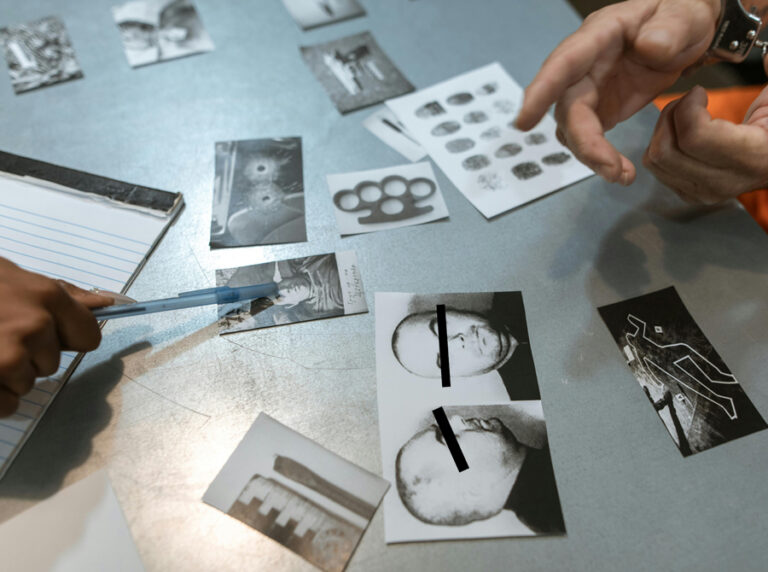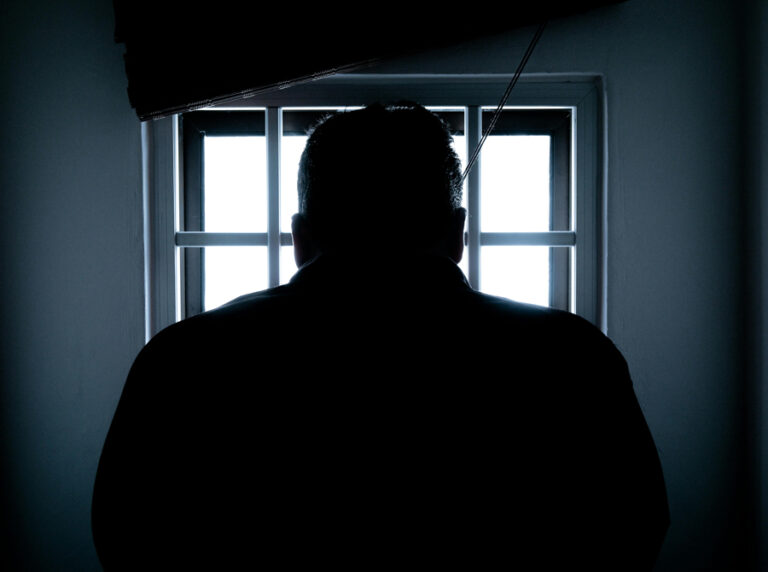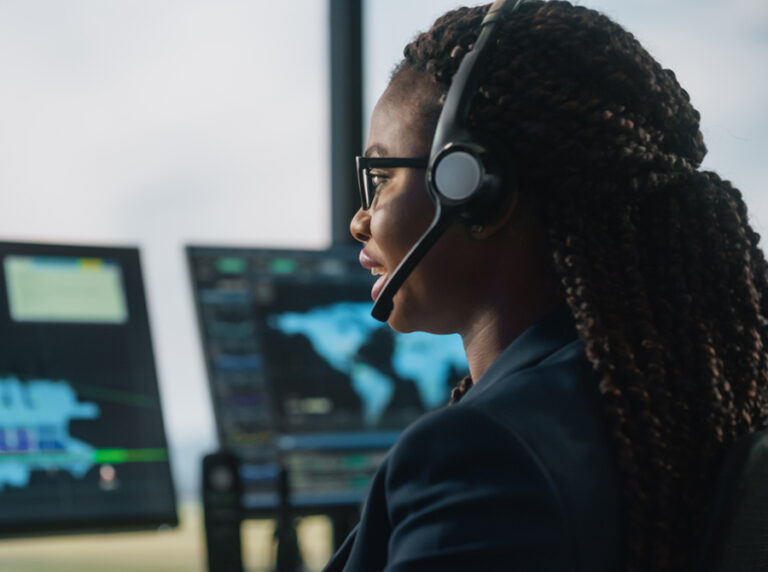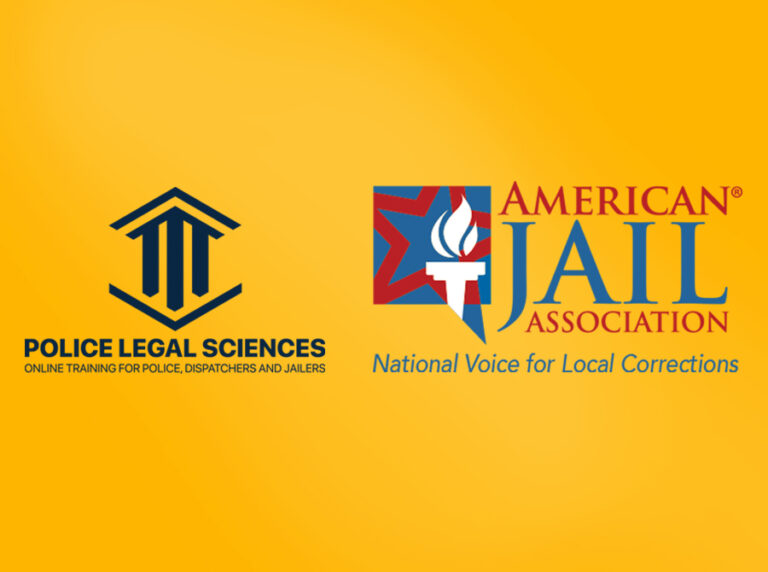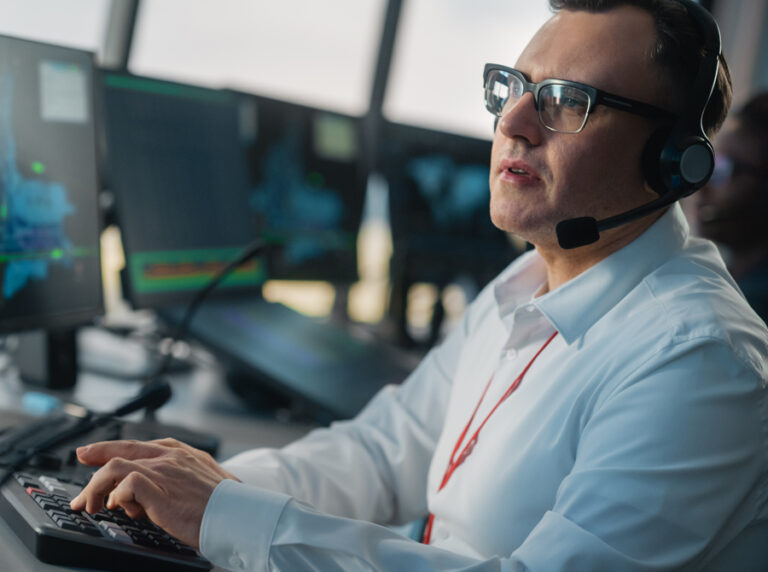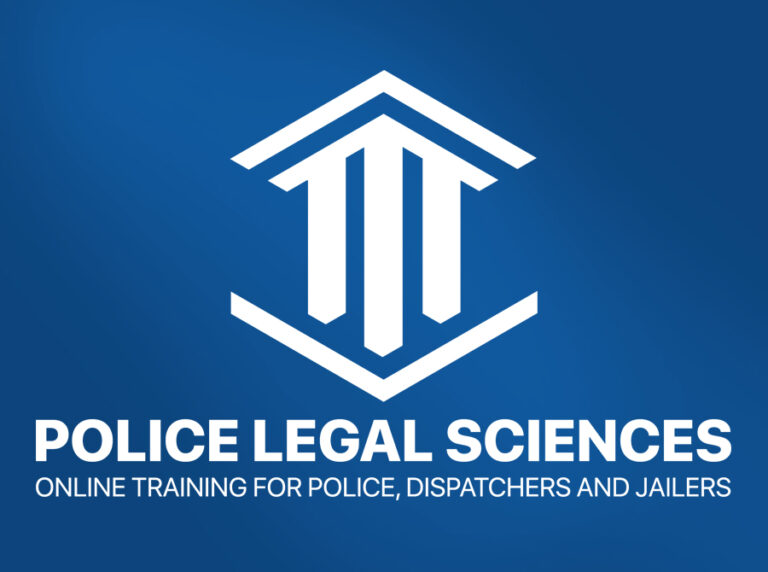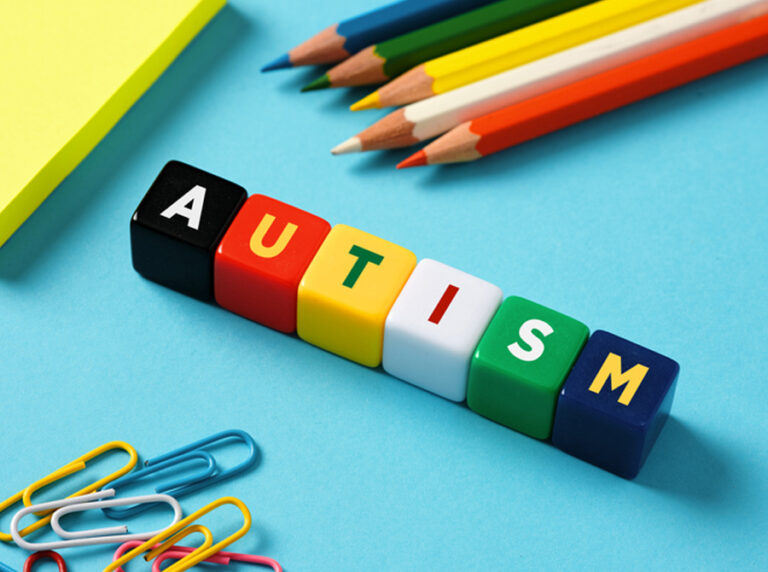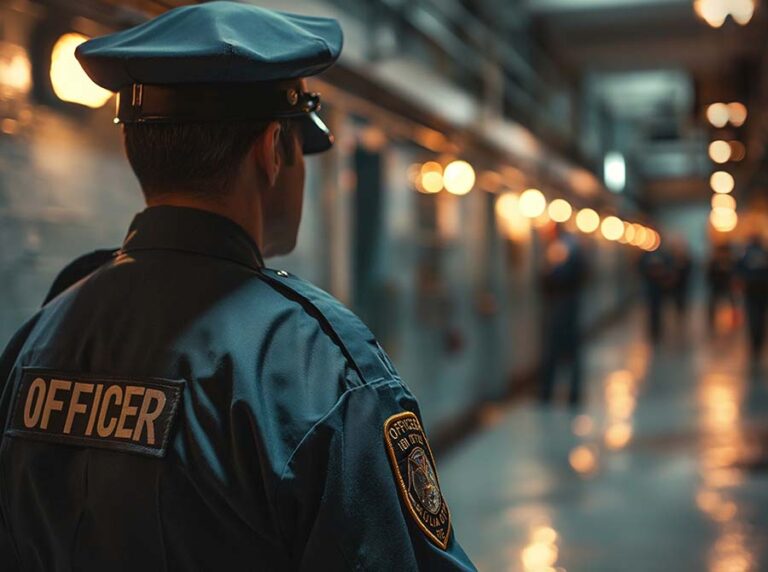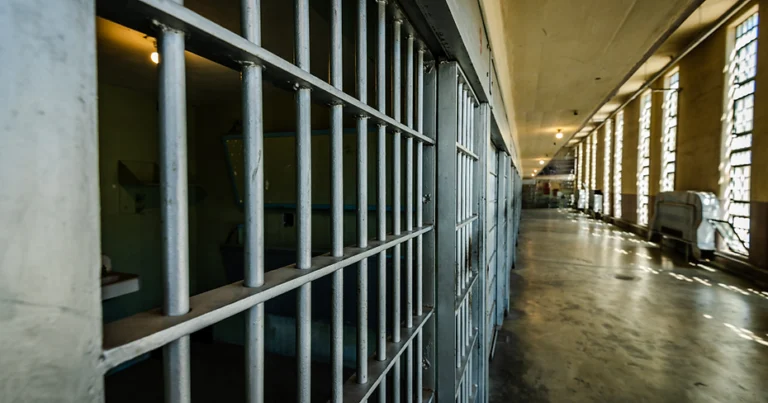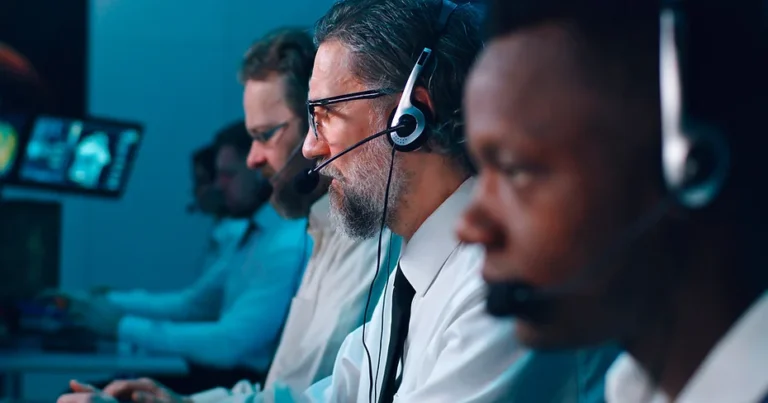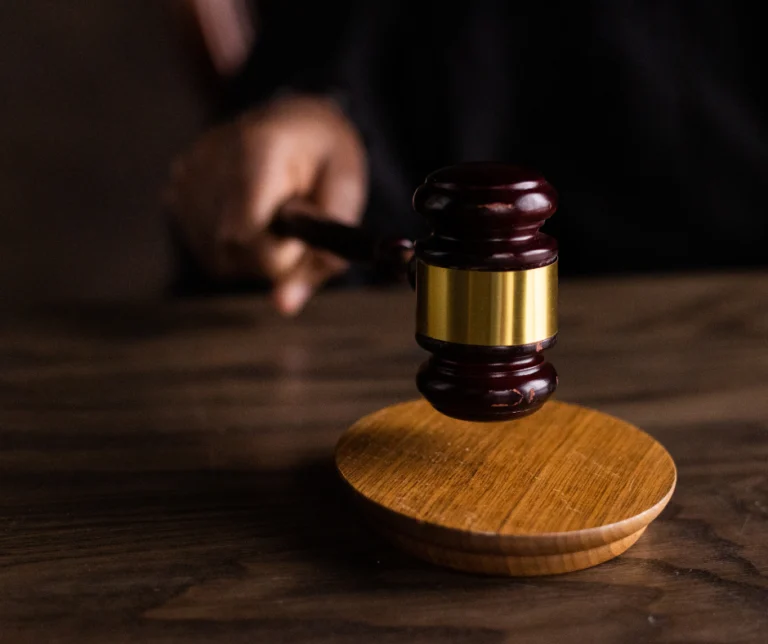Every dispatcher knows the weight of decisions that must be made in seconds. They are tasked with being a calm voice guiding chaos, often with limited information, and their every choice can dramatically alter the course of events. What happens when those moments come and the “right” thing isn’t clear, or when the circumstances require ... Read more
Building 9-1-1 Dispatcher Resilience Through Online Training In the world of emergency communications, every call is a test of judgment. Dispatchers are asked to make high-stakes decisions in seconds—decisions that directly affect the safety of callers, first responders, and communities. Yet what’s often overlooked is the cognitive toll of making rapid-fire choices, hour after hour, ... Read more
Every shift, dispatchers step into a world of urgency, unpredictability, and emotion. Addressing emotional burnout in 911 dispatchers is crucial, as they are the steady voice guiding people through the worst moments of their lives—often without recognition. These high-stakes environments are a recipe for burnout, and so addressing emotional burnout should be prioritized. Burnout doesn’t ... Read more
When Every Sound Matters In emergency communications, being able to really listen is the most critical part of the job. Every shift in tone, background noise, or breath can be a hint that something may dramatically change the course of a call. But when dispatchers spend hours absorbing a constant stream of noise—urgent voices, alarms, ... Read more
When someone dials 9-1-1, chaos is often the backdrop. Teaching dispatchers to communicate effectively under pressure is crucial. Screams, sirens, confusion, and fear. In those moments, the voice of the dispatcher becomes the lifeline. Dispatchers are tasked with gathering critical details quickly while guiding a caller through what may be the worst moment of their ... Read more
Dispatchers are trained to respond quickly to emergencies—however, sometimes the most critical intervention happens before a situation explodes. Therefore, training 911 dispatchers to spot trouble early is crucial in recognizing the early signs of escalation, which can prevent violence, reduce panic, and keep both callers and first responders safer. Additionally, developing this skill, known as ... Read more
Effective 9-1-1 dispatch training is more than memorizing protocols, reading policies, or checking boxes on a syllabus. When it comes to effective 911 dispatcher training, technical knowledge is essential, but the true art of online 9-1-1 dispatcher education lies in teaching the whole human being—preparing call-takers to respond with skill, empathy, and resilience under pressure. ... Read more
When emergencies happen, 9-1-1 dispatchers are the first, first responders to be involved. They answer the calls, gather crucial information, and coordinate emergency services — all in a matter of seconds. Understanding how 911 dispatchers stay calm under pressure is vital, as panic or hesitation can delay help and put lives at risk. Remaining calm ... Read more
The purpose of de-escalation is to bring chaotic situations to as peaceful a resolution as possible, without increasing the risk of harm to anyone. De-escalation techniques are useful for law enforcement officers to: De-escalation includes communication, critical thinking, incident resolution, and officer discretion. There are many verbal and physical de-escalation techniques. Police officers must use ... Read more
Dispatchers face constant emotional and cognitive pressure. They manage life-threatening emergencies, often without closure or decompression. Top stressors include: This ongoing stress can lead to serious mental health challenges, including: Burnout Burnout is emotional exhaustion caused by prolonged workplace stress. It’s common in high-pressure roles like emergency dispatch. Common Signs: Compassion Fatigue Compassion fatigue happens ... Read more
In emergency communications, resilience isn’t optional—it’s survival. Dispatchers operate under constant stress, unpredictable calls, and emotional weight, all while making decisions that literally change lives. Training matters. Technology matters. But the real game-changer? Culture. This post breaks down the habits and mindsets that build dispatch center resiliency, elevate professionalism, and fuel the heartbeat of the ... Read more
In moments of crisis, the sound of a dispatcher’s voice can be just as powerful as the words they say. A dispatcher’s tone isn’t just a delivery method—it’s a life-saving tool. With their tone of voice, they can de-escalate a panicked caller, support someone through a traumatic experience, and transform chaos into clarity. Why Tone ... Read more
Every year the Iowa Legislature passes many laws relevant to law enforcement officers and the criminal justice system. Officers are responsible for knowing and understanding the changes that relate to the execution of their duties. Some of these laws create new criminal offenses covering specific fact scenarios. For example: The new laws impact law enforcement ... Read more
Jail administrators have many valid reasons to regulate incoming mail. These can include inmate safety concerns, potential security breaches, and staffing officers for screening the mail. However, people outside the jail also have a right to communicate with inmates in the jail. Balancing jail needs with this right can present challenges for jails. One such ... Read more
Public safety telecommunicators in Washington are now subject to formal continuing education (CE) requirements under the guidance of the state’s 9‑1‑1 Certification Board. This effort helps standardize training across agencies, improve job performance, and reduce liability. Whether you manage a large PSAP or oversee training at a smaller agency, staying compliant with Washington’s CE standards ... Read more
Police departments in Europe having been using trained dogs for hundreds of years, starting in the 1300s in St. Malo, France. In 1895, in Paris, France, the city police department created a corps of dogs to help combat gang activity. Seeing how well the dogs helped the police bring gangs under control, police departments in ... Read more
As autism rates continue to rise nationwide, it’s more important than ever for 911 dispatchers and public safety personnel to be prepared for encounters with individuals on the autism spectrum. In a recent Dispatch Pro lesson, we explored how autism impacts communication, behavior, and emergency response, and how dispatchers can respond with professionalism, confidence, and ... Read more
Correctional officers have a constitutional duty to ensure inmates receive appropriate medical care. But when does a delay or failure to respond cross the line into a constitutional violation? The United States Court of Appeals for the Eighth Circuit answered this question in Humes v. Jones, a case where a spider bite led to serious ... Read more
Immigration into the United States is a current social and political issue. More than two million noncitizens legally immigrated to the United States in 2022 alone, using different legal pathways with different types of legal documentation. Also, tens of millions of noncitizens visit the United States every year for a wide variety of reasons, carrying ... Read more
Correctional facilities are responsible for providing inmates with meals that meet basic nutritional needs. But when those meals interfere with an inmate’s sincerely held religious beliefs, the situation becomes more complex and potentially unconstitutional. In Pendleton v. Jividen, the Fourth Circuit Court of Appeals reviewed a case involving an inmate in West Virginia who practiced ... Read more
The First Amendment of the United States Constitution protects certain rights, including the Freedom of Speech and the Freedom of Assembly. Under 42 United States Code section 1983, police officers and their agencies can be sued for violations of a person’s constitutional rights, including First Amendment rights. These First Amendment rights have limits. Statutes, regulations, ... Read more
Understanding Inmate Punishment and Due Process Correctional officers often face difficult decisions when maintaining order and safety within their facilities. However, when it comes to disciplining pre-trial inmates, it’s critical to distinguish between necessary security actions and unconstitutional punishment. The April 2025 Jail Pro lesson dives into this issue by analyzing the recent federal case ... Read more
Continuing education is an essential part of professional growth for emergency dispatchers, and Georgia has taken steps to ensure communication officers stay sharp, informed, and ready to serve. According to the Georgia Peace Officer Standards and Training Council (POST), certified communications officers in the state are required to complete 10 hours of continuing education each ... Read more
As of January 1, 2025, Indiana requires all public safety telecommunicators to complete 24 hours of continuing education each year. This law, passed under Senate Bill 158, was created to support dispatcher readiness and ongoing professional development. Under the new requirement: This is a major change for Indiana dispatchers, and agencies will need a reliable ... Read more
When it comes to talking to child callers, their ability to provide critical information depends largely on their age, developmental stage, and communication skills. Dispatchers play a crucial role in tailoring their approach to ensure they can gather the necessary information to facilitate an effective emergency response. Understanding the nuances of each age group and ... Read more
Racial bias in policing can take different forms, for example: Missouri statutes and regulations, and accrediting organizations such as CALEA, require certain public safety officers to receive training to help prevent racial profiling and improper bias. Many law enforcement agencies across the United States have recently introduced AI tools to help in police work. One ... Read more
What Is Secondary Trauma? Trauma is an intense emotional response to unexpected and highly distressing events. While many people recover naturally over time, some experience prolonged distress, leading to conditions like post-traumatic stress disorder (PTSD) or secondary trauma. Secondary trauma occurs when someone is indirectly affected by another person’s traumatic experience. This could happen to ... Read more
Law enforcement officers will be familiar with the Miranda warnings. Established in the United States Supreme Court case Miranda v. Arizona, 384 U.S. 436 (1966), officers must warn an individual who is taken into custody and subject to questioning that he or she has the right to remain silent and that anything he or she ... Read more
The Challenge of ComplacencyBeing a 9-1-1 dispatcher is a demanding and high-pressure job. Dispatchers work long hours, manage high call volumes, navigate emotionally charged situations, and often receive little recognition for their critical contributions. Over time, these factors can lead to burnout, compassion fatigue, and, most dangerously, complacency. Complacency occurs when someone becomes overconfident, careless, ... Read more
Gender dysphoria is psychological distress that results from an incongruence between one’s sex assigned at birth and one’s gender identity. Gender dysphoria and the medical needs of transgender inmates are important topics for correctional officers. One key question often raised is whether discontinuing an inmate’s hormone replacement therapy (HRT) can violate their constitutional rights, especially ... Read more
Drug trafficking is a pervasive and dangerous crime that involves the illegal production, distribution, and sale of drugs. From small street-level operations to expansive international networks, drug trafficking can take on many forms. Dispatchers play an important role in identifying and relaying crucial information about suspicious activities, potentially preventing harm, and aiding first responders in ... Read more
Congratulations! You’ve made it through the grueling testing process, passed the background check, mastered the CAD system, memorized the geography quirks, and absorbed the policies, ordinances, and rules to join the Dispatchers Club. That’s no small feat! But now that you’re in the chair, you might find yourself wondering, “What’s next for me?” It’s a ... Read more
Law enforcement officers are regularly called on to aid people found in dangerous situations caused by extreme weather conditions. However, officers must also have enough information to protect themselves from harm. The better prepared officers are to stay safe, the better able they are to protect the public, both by using the information they know ... Read more
Correctional officers are responsible for the conditions inmates experience during incarceration. But when do these conditions cross the line into unlawfulness? The case Olivier v. Baca, 913 F.3d 852 (9th Cir. 2019) discusses when jail officials may be held liable for subjecting inmates to unlawful conditions of confinement, particularly under the protections provided by the ... Read more
The Religious Land Use and Institutionalized Persons Act (RLUIPA) was enacted in 2000 to protect the religious rights of individuals confined to institutions. Under RLUIPA, jail rules and policies may violate an inmate’s rights when the rule or policy substantially burdens the inmate’s ability to practice his or her religion. In such a scenario, a ... Read more
As we head into the political season this fall, it’s important to remember that the decisions made in Washington can have a direct impact on our emergency communication centers (ECCs). As someone involved in this field, here are a few key areas I’ll be keeping an eye on that could affect how we operate. One ... Read more
Accessible grievance procedures are essential for every correctional facility. A recent ruling in Carr v. El Paso Cty. Jail, No. 23-1104, 2023 U.S. App. LEXIS 23491 (10th Cir. Sep. 5, 2023) highlights the legal necessity for clear and functional processes, particularly in the light of the Prison Litigation Reform Act (PLRA). The PLRA requires inmates ... Read more
Having worked both on the floor and in management in a 911 center, I have a unique perspective on the use of personal electronics in such a critical environment. The debate over allowing personal devices like cell phones, tablets, or the like has intensified in recent years, fueled by high-profile incidents where things went horribly ... Read more
A vital responsibility of law enforcement is to enforce the drug laws through diligent, often dangerous, investigation of those who break these laws. Many of those involved in illegal drugs, especially those who commit violent crimes in the course of their criminal activity, need to be incarcerated in order to protect the safety of the ... Read more
One of the fundamental powers of law enforcement officers is the power to make arrests. The better that officers understand and appreciate the origin and scope of their arrest powers, the better they will be able to appropriately exercise those powers. Because the arrest power directly impacts individual liberty, it is controlled by different types ... Read more
A dispatcher’s salutation is the first impression a caller gets of the dispatcher and their agency. A good salutation can help establish rapport, build trust, and encourage cooperation, which are essential for a successful interview. In contrast, a poor salutation can have the opposite effect on a caller creating confusion, frustration, or reluctance to cooperate. ... Read more
Two types of thinking human beings use in everyday life are “System 1” and “System 2.” Implicit bias is subconscious feelings, perceptions, attitudes, and stereotypes that create automatic positive or negative preferences. Some biases are inborn—for example, an infant’s fear of loud noises. Other biases arise from external influences, such as exposure to media and ... Read more
Federal law requires every vehicle “manufactured in one stage” (e.g., where one manufacturer makes the parts and assembles them into a completed vehicle) to have a unique VIN consisting of seventeen alphanumeric characters. VINs help the government regulate vehicles in important ways, including: To make VINs as useful as possible, federal regulations require the VIN ... Read more
Drunk and drugged drivers kill tens of thousands of people in the United States each year, including hundreds in Missouri. Missouri’s Implied Consent law helps patrol officers immediately remove these dangerous drivers from the streets. The following is a brief overview of a few of the law’s many requirements and procedures. Under this law, anyone ... Read more
Financial exploitation of the elderly is a huge problem which is becoming worse. In 2022, the FBI reported $3.1 billion in losses from elderly victims. However, the losses are likely much higher, because studies show that only about 1 in 44 cases of elder financial abuse are ever reported. Elder financial exploitation is committed in ... Read more
Every September, we join the nation in celebrating National Preparedness Month. For those of us who remember the early days of 911, it’s remarkable to see how far we’ve come—from pencil and notepad to advanced systems that are the backbone of emergency response. When disaster strikes, our 911 centers must continue to function despite potential ... Read more
According to the federal Department of Housing and Urban Development, homelessness in the United States is at its highest levels since the agency first started tracking the issue. The number of homeless encampments is the highest it has been in almost a century. Inhabitants of these encampments face heightened risk of becoming victims of sexual ... Read more
In the high-stress environment of corrections, officers face unique challenges that can take a significant toll on their mental health. From managing inmate behavior to ensuring the facility’s safety and security, the job demands are immense. Recognizing and addressing the impact of stress and strained mental health is crucial for correctional officers’ well-being and the ... Read more
Communication is the lifeblood that keeps the operation running smoothly in the emergency communications center (ECC). Every word exchanged can significantly influence not only the immediate outcomes of critical situations but also the morale and effectiveness of the team. There’s no denying the power our voices and words have on the outcome of emergency calls ... Read more
To be effective, law enforcement officers must keep current with changes in the criminal laws. In this year’s session, many criminal offenses were amended and new ones added. Some amendments to existing criminal offenses include: Aiding a juvenile to commit a weapons offense is a violation of the crime of endangering the welfare of a ... Read more
Chapter 610, Missouri Revised Statutes, is called the “Sunshine Law.” It governs what materials governmental agencies must disclose to the public upon request. The law is designed to foster a healthy democracy by increasing transparency in government, limiting corruption, creating a better-informed public, and improving public trust. The Sunshine Law applies to “public governmental bodies.” ... Read more
In this year’s session, the Iowa Legislature passed many laws relevant to law enforcement and the justice system. These laws went into effect no later than this July. Officers are responsible for knowing and understanding the changes that relate to the execution of their duties. Some of these laws create new criminal offenses covering specific ... Read more
In the high-stress environment of an emergency communications center (ECC), burnout, compassion fatigue, and anxiety can take a heavy toll on the mental health and well-being of 911 professionals. It is a crisis of national proportions that is plaguing our ECCs today. Many telecommunicators are feeling overwhelmed, unmotivated, and uninspired, causing them to lose their ... Read more
With a focus on helping public safety professionals make effective and ethical decisions, Police Legal Sciences, Inc. (PLS) has been a trusted partner for public safety agencies and individuals for 25+ years. PLS online reality-based training takes a unique approach by using real court cases, lawsuits, and 911 calls as the foundation for our lessons. ... Read more
In the heart of emergency response lies the 911 center, a conduit of information where every second counts, and every call holds potential to save lives. Within this vital space, toxic negativity can seep in, corroding morale, and hindering effective operations. Combatting this toxicity demands more than just addressing behaviors; it requires a fundamental shift ... Read more
A serious problem in Britain’s history and in Colonial America was the practice of using torture or other coercion to force people to confess to crimes. The Fifth Amendment in the United States Constitution’s Bill of Rights addresses this through the right against self-incrimination: “No person . . . shall be compelled in any criminal ... Read more
Let’s start with a question. “What do you think of when you see or hear the term, ‘Next Generation 911?’” I imagine that your head is filled with images of emergency communications centers (ECCs) receiving video clips or still images of emergencies in real time, or a passerby pointing their iPhone in the direction of ... Read more
In recent years, transgender inmate rights have emerged as a critical issue within the realm of corrections. The complex intersection of gender identity and incarceration presents unique challenges for correctional facilities nationwide. Transgender individuals can find themselves faced with incidents of harassment and violence behind bars. Transgender inmates often present several questions within correctional settings, ... Read more
In moments of crisis when every second counts, the first point of contact with emergency services can significantly influence the outcome of the situation. Emergency dispatchers serve as the vital link between individuals in distress and the assistance they urgently require. Beyond merely relaying information, these unsung heroes possess the power to shape the entire ... Read more
Have you ever heard someone say, “I’m just a dispatcher,” or perhaps, “I’m just a call taker?” Maybe you’ve found yourself thinking these kinds of “I’m just…” thoughts. Long gone are the days of the “911 Operator” who sat fixed in their chair in front of rows of blinking lights indicating incoming calls, manually connecting ... Read more
Every 911 call presents a unique set of challenges for dispatchers, and many have complex psychological elements. Some calls may involve individuals grappling with mental illness or emotional distress, and having a keen understanding of these factors can help dispatchers effectively manage such situations. Recognition of Mental Health Crisis It is not uncommon for ... Read more
As we return to election season, jail officials must be mindful that they may be required to provide inmates with a method of casting a ballot. Depending on the state, people convicted of a felony are often ineligible to vote. However, many jail inmates have not been convicted of a felony, and many states have ... Read more
Police Legal Sciences (PLS) is excited to announce our new partnership with the American Jail Association (AJA). This alliance aims to enhance the professional development and effectiveness of correctional officers by providing greater access to difficult-to-obtain legal education. In 2020, PLS released Jail Pro, our online reality-based corrections caselaw training, to provide regular legal updates ... Read more
Telecommunicator Week is a fantastic opportunity for agencies to recognize and appreciate the hard work and dedication of their telecommunicators. Many agencies have implemented some great events and activities to celebrate their teams. Here are some ideas that may help you show your appreciation: While you are making plans for Telecommunicator Week, DON’T FORGET YOUR ... Read more
Although the exact process and timeline varies between certifying bodies, most EMD-certified dispatchers are required to complete 24 hours of continuing dispatcher education (CDE) during every two-year recertification period. There are many reasons for this continuing education requirement. Regular training is important as it helps dispatchers stay up to date on protocols and guidelines, adapt ... Read more
Join Us on the Road: Police Legal Sciences’ Conference Exhibition Schedule for 2024 Police Legal Sciences is committed to staying at the forefront of the public safety industry and connecting with professionals like you. That’s why we are excited to announce our lineup of conferences and events for the year 2024! Here’s where you can ... Read more
When officers are called to a residence by a landlord or co-tenant and asked to remove someone from the property, what are they supposed to do? Should they immediately remove the person if he or she is trespassing? What if the person is a tenant at the residence? What if the landlord is requesting officers ... Read more
Officers are likely to encounter individuals with Autism Spectrum Disorder (ASD) while executing their duties. Officers can increase their effectiveness and avoid liability by being aware of the nature of autism, learning its indicators, and applying best practices when interacting with witnesses, victims, and suspects who may be “on the spectrum.” What is Autism? ... Read more
In the fast-paced world of emergency dispatch, where every hall cold holds the weight of a potential life-altering event, the toll on a dispatcher’s mental and emotional health can be severe. Training strategies prioritizing stress management, mental health, and emotional wellness are essential in equipping 911 dispatchers with the resilience and skills needed to manage ... Read more
Officers have become increasingly likely to encounter opioids when responding to emergencies. In response to concerns that officers could often be near a potentially hazardous substance, many agencies previously issued strong warnings about the danger of opioids. In recent years however, law enforcement agencies have begun to recognize that the danger presented from being near ... Read more
In this year’s session, the Missouri Legislature passed many laws relevant to law enforcement and the justice system. These laws go into effect on August 28, 2023. Officers are responsible for knowing and understanding the changes that relate to the execution of their duties. Some of these laws relate to officer safety, well-being, and discipline. ... Read more
Every year the Iowa legislature agrees on new laws that are relevant to law enforcement officers throughout the state. These laws generally take effect on July 1, though some are effective earlier. This year, there are a number of new laws covering many different criminal offenses. Some of the highlights include: Officers are responsible for ... Read more
Cultural Competence in Corrections In the diverse and multicultural landscape of correctional facilities, cultural competence plays a pivotal role in promoting understanding, effective communication, and successful rehabilitation. Correctional officers who are trained in cultural competence are better equipped to navigate the complexities of diverse inmate populations, leading to improved safety, trust, and positive outcomes. Let’s ... Read more
Law enforcement officers and correctional officers face high-stress situations every day. The stress and trauma that result from working in a 24/7 profession that regularly requires officers to interact with people under some of the worst possible circumstances highlight the need for focusing on officer wellness. Stress can lead to poor performance and diminished physical ... Read more
We live in the Information Age, a time of technological advancement and increased access to digitized knowledge. With this enhanced availability, there are now hundreds of options when selecting public safety training for law enforcement, dispatchers, and correctional officers. Why should you choose reality-based training? Builds Decision Making Skills Reality-based training engages users in real-life ... Read more
The United States Constitution was designed to protect individual rights and liberties and to preserve the rule of law. But those principles and laws are powerless without someone to enforce them. Law enforcement officers are “the thin blue line” that protects individuals and preserves peace and freedom. Police officers’ training and equipment allows them to ... Read more
9-1-1 Dispatchers are unsung heroes, playing a critical role in emergency response. These dedicated professionals are the lifeline between callers in distress and the responders who come to their aid. Dispatchers handle various emergencies, from life-threatening medical emergencies to criminal incidents. They must remain calm and focused while quickly gathering information, making critical decisions, and ... Read more
April is sexual assault awareness month. According to the Centers for Disease Control, in 2016/2017 approximately one in four women in the United States have experienced an attempted or completed rape, as well as 4.5 million men. One in two women and one in four men have experienced some form of unwanted sexual contact. Only ... Read more
Moving from traditional in-person training to an online program can feel intimidating, but the transition process is worth the long-term benefits. Online training is often customizable, heavily researched, and engaging. Agencies also love the flexibility it can provide, as lessons can be completed at each staff member’s own pace. So, if you’re ready to make ... Read more
The F.B.I. calls them domestic terrorists. They’ve killed dozens of peace officers and wounded scores more. Nearly half of the killings occurred during traffic stops or during process serving. Their beliefs are far-fetched, almost laughable, but the danger they pose to law enforcement is deadly serious. They call themselves “sovereign citizens.” What Do Sovereign ... Read more
High-stress situations are the norm for law enforcement and correctional officers. Even in life-threatening or unclear circumstances, they are expected to maintain composure to protect themselves and others. Those in the profession are well aware that performing under this kind of pressure requires resilience and sound mental health. So, what happens when officers experience PTSD, ... Read more
Becoming a police officer typically requires several months of rigorous training and testing at an academy, covering physical fitness, defensive tactics, use of force, understanding the law, and other subjects. While basic training is critical, successful police officers are career-long learners. Here’s why officers need continued training: To Satisfy Continuing Education Requirements Iowa and ... Read more
When we developed Jail Pro, we wanted to address the needs specific to jails and other correctional facilities. And while many training options exist, our training targets reducing lawsuits and refining skillsets. Jail Pro Helps Reduce Lawsuits Against Jailers, Jail Supervisors, and Correctional Officers In the realm of law enforcement, civil lawsuits are a constant ... Read more
When members of the public think of emergency situations, they may think of firefighters running into a burning home, ambulances speeding through city streets, or the distinctive red and blue flash of police lights. The term “emergency” encompasses a lot. However, what all of these scenarios have in common are the dispatchers behind the scenes ... Read more
Between emerging legislation and courtroom decisions, state and federal laws are everchanging. Meanwhile, police officers are expected to not only keep up with those changes, but to effectively enforce these laws in their communities. Falling behind can result in procedural mistakes, costly lawsuits, lengthy trials, inadmissible evidence, and poor reputations. The following cases from the ... Read more


